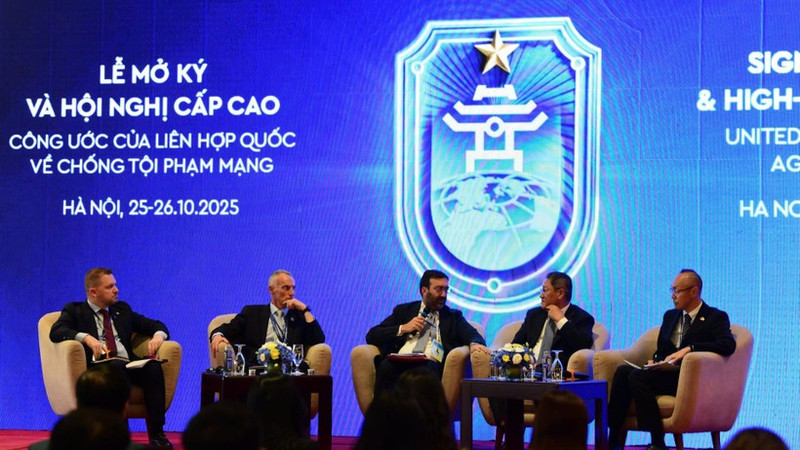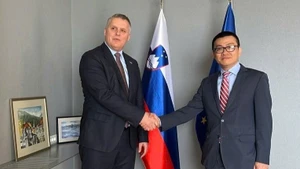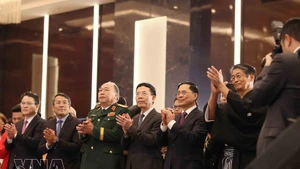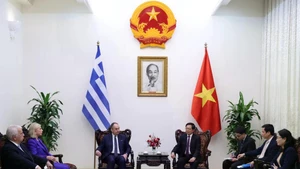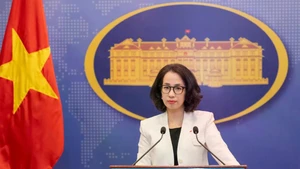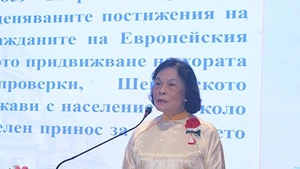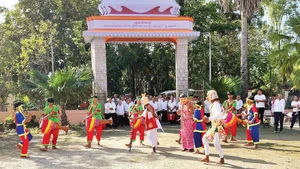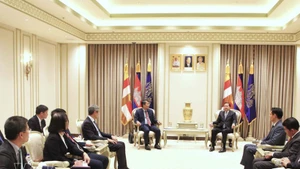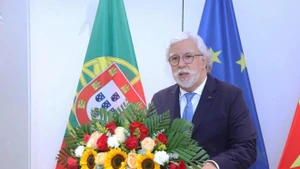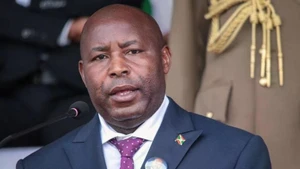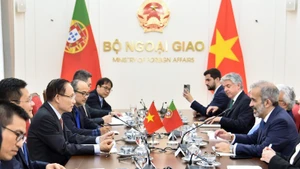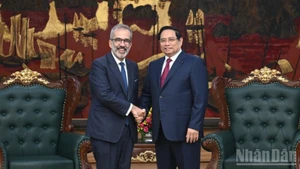In his opening remarks, Nguyen Quang Dung, Deputy Prosecutor General of the Supreme People’s Procuracy of Viet Nam and representative of the host country, emphasised the historic significance of the United Nations Convention Against Cybercrime — the first comprehensive international legal instrument governing the prevention, investigation, prosecution, and adjudication of this form of transnational crime.
He affirmed that Viet Nam attaches great importance to enhancing international cooperation and strengthening institutional, technical, and human resource capacity to effectively respond to cybercrime — a form of crime that is anonymous, global in scope, and evolving at unprecedented speed.
The Deputy Prosecutor General stressed that Viet Nam is gradually improving its legal framework, consolidating technical capacity, and raising public awareness on cybersecurity. The country is also willing to cooperate with other nations and international organisations in implementing the Convention, sharing experience, and providing mutual support in combating high-tech crime, thereby contributing to the development of a safe, reliable, and humane cyberspace.
As coordinator of the session, Gianluca Esposito from the Council of Europe, commended Viet Nam’s strong commitment to implementing the Convention and its positive contributions to building the framework for international cooperation.
Representing Cambodia, Deputy Prime Minister Sok Chenda Sophea stated that one of the most important values of the Convention lies in capacity building for its member states. He emphasised that, in a world of rapidly evolving technology, countries need a shared toolkit, a common technical language, and continuously updated knowledge.
Deputy Prime Minister Sok Chenda Sophea noted that Cambodia is in the process of developing the Law on Cybersecurity, the Law on Combating Cybercrime, and the Law on Personal Data Protection. He affirmed that the Cambodian Government highly values the Convention and is committed to translating its provisions into concrete actions, strengthening regional and international cooperation to achieve common goals in cybersecurity.
Speaking at the session, Major General Christophe Husson, Head of the Cyber Department under the French Ministry of the Interior, highlighted the importance of building strategies to realise international commitments, considering this a crucial step to effectively respond to emerging risks. He said France regularly organises joint training and simulation exercises among public agencies, prosecutors, and law enforcement forces, while urging countries to share information, initiatives, and legal frameworks, stressing that “without a shared foundation, the results of cooperation will be limited.”
Gianluca Esposito, Head of the Regional Centre for Cybercrime in Doha under the United Nations Office on Drugs and Crime (UNODC), stated that the UNODC is implementing a plan to support countries in addressing cybersecurity threats and emerging forms of cyber-enabled crime. According to him, to effectively combat cybercrime, nations must establish common foundations in legal frameworks, technical capacity, and human resources.
Representing Japan, Kobayashi Yosuke from the Japan International Cooperation Agency (JICA Viet Nam) reaffirmed that JICA will continue to support Viet Nam and countries in the region through capacity-building programmes for prosecutors, judges, and lawyers, with the goal of ensuring that “no country is left behind” in the global fight against cybercrime.
The delegates agreed that to effectively implement the United Nations Convention Against Cybercrime, countries must strengthen political commitment, improve legal frameworks, establish rapid coordination mechanisms among law enforcement agencies, and, above all, recognise that capacity building is an essential pillar of global cooperation.
